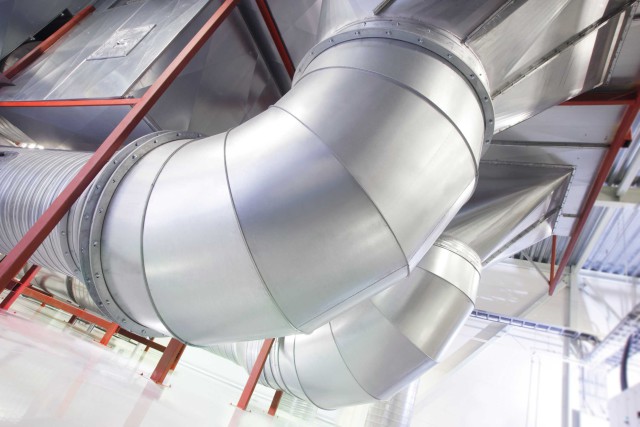Advertorial - How VSDs will deliver a sustainable future for data centres

Data centres consume huge amounts of energy, much of which goes into cooling. Carl Turbitt, HVAC Drives – UK Sales Manager, ABB, explains how, when it comes to achieving sustainability, variable speed drives (VSDs) are the best-performing technology available.
At Data Centre World, which recently took place at London’s ExCeL, one of the hottest topics of discussion was sustainability. Data centres produce huge amounts of heat, and as such are mega-consumers of energy. Indeed, a colossal amount of data is generated every day – so colossal in fact that no one really knows how much, but in 2020 it was estimated to be 1.7 megabytes per person, per second.
40 percent of all energy consumed by data centres goes into cooling, chiefly using fans, and there are two schools of thought as to which type of technology is superior here. In the one corner we have electronically commutated (EC) fans: these are motor and drive packages that are integrated together as a single assembly, and are particularly efficient at a full load. In the other: fan and variable speed drive (VSD) configurations.
Comparing the efficiency of the two is not as simple as just comparing IE classes. For instance, EC fans are typically custom made and not always sized to traditional IEC dimensions. We also find that efficiency levels reported by manufacturers in testing conditions are not reflected in field performance. Specifically, EC fans tend to be less efficient at partial loads. Data centre cooling systems are designed for peak loads and worst-case conditions that in reality rarely occur, making VSDs the more economical option over the lifetime of the system.
Because EC fans are often built to bespoke specifications, it can be extremely difficult to get replacement parts in the event of a failure, and particularly in the current trading conditions that can mean very long lead times – well over a year in some cases. Conversely, with a VSD and motor, either device can be easily swapped out for an equivalent from almost any manufacturer. Taking a longer term view here can save major headaches further down the line when it comes to maintenance.
VSDs provide other benefits for data centre cooling applications too. VSDs provide integrated communication protocols (i.e. BACnet, Modbus) along with HVAC-specific macros and PID control, allowing flexibility to adapt control systems to the needs of the facility and integration with the BMS, removing the need for gateways. VSDs also include functionalities that can replace other panel components, such as thermostats, relays, safety contacts, external HMIs, isolators and energy management tools, reducing required cabinet space and optimising precious data centre real estate.

To learn more about VSDs and how they stack up against EC fans, download our white paper: https://new.abb.com/docs/librariesprovider53/about-downloads/white-paper_hvac_drives_3aua0000193190_reva.pdf?sfvrsn=2
To sign up to our “EC Fan vs Induction motor technology overview” seminar, contact Carl Turbitt directly at carl.turbitt@gb.abb.com, on 01925 741111, or find him on LinkedIn.








